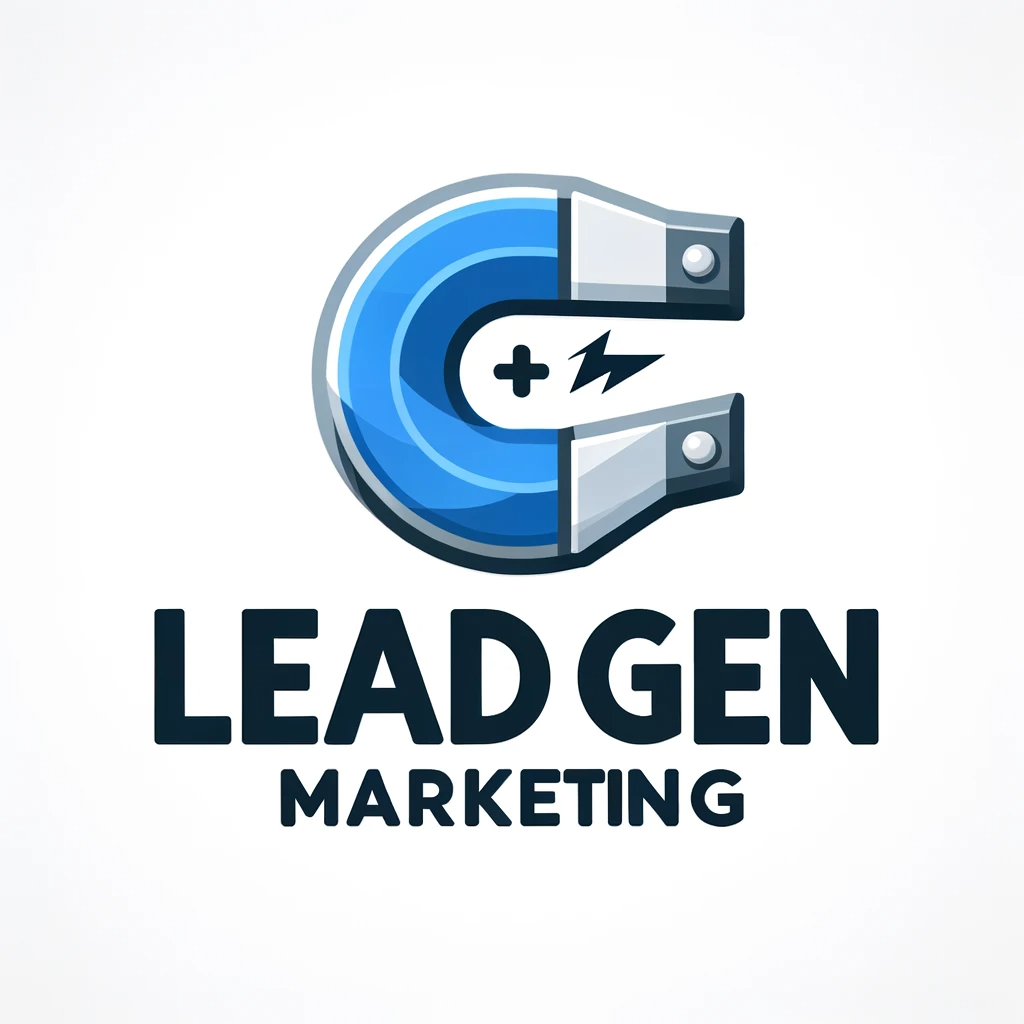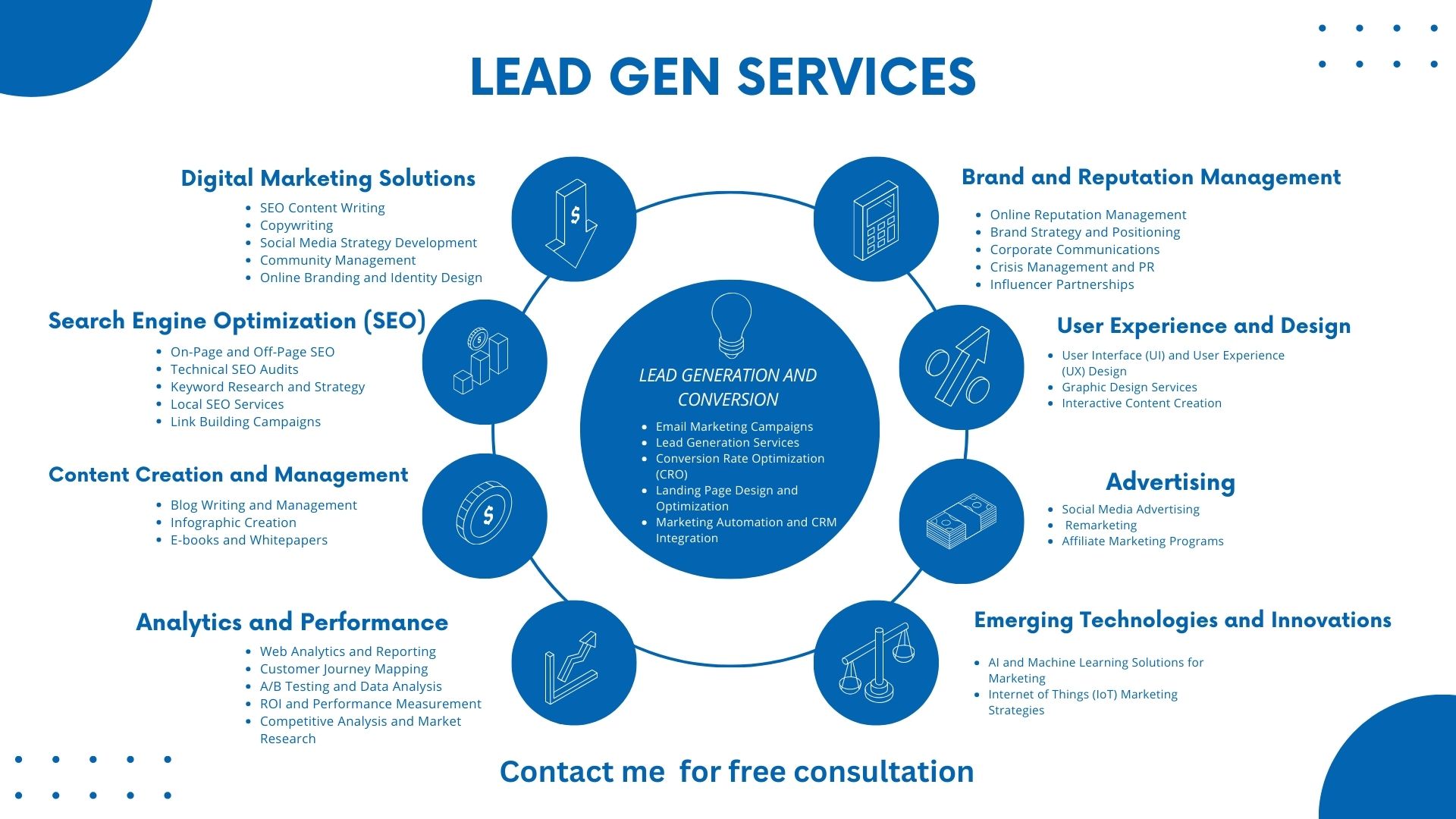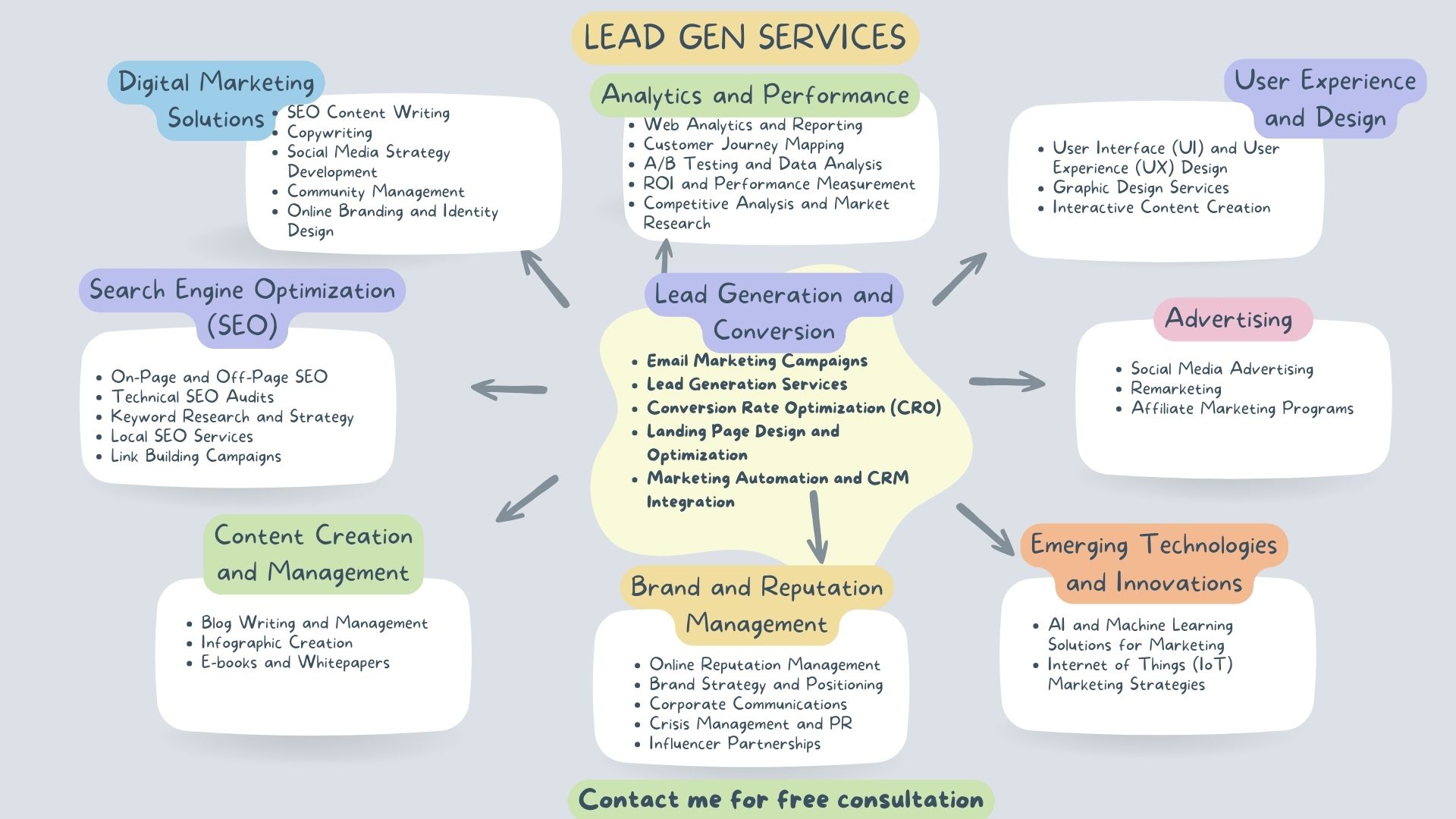What is quality lead generation and why is it important for businesses?
Quality lead generation is the process of identifying and attracting potential customers who are genuinely interested in a business’s products or services. It is important for businesses because quality leads have a higher chance of converting into paying customers, leading to increased sales and revenue.
Lead generation is the lifeblood of any business. Without a consistent flow of high-quality leads, sales teams would struggle to meet their targets, marketing efforts would fall flat, and business growth would stagnate. That’s why it’s crucial for companies to have effective strategies in place to generate quality leads and maximize their potential for success.
In this blog, we will explore the world of lead generation, the importance of quality leads, the different types of leads, and strategies to generate more leads. We will also discuss the lead qualification process, innovative lead generation strategies, and the impact of lead generation on business growth. So, let’s dive in and uncover the strategies for successful lead generation.
Understanding Lead Generation
Lead generation is the process of attracting potential customers, known as leads, and converting them into paying customers. It involves identifying target audience, capturing their contact information, and nurturing them through the sales funnel. Lead generation forms the foundation of customer acquisition and business growth. 61% of marketers finding lead generation their biggest challenge and 79% making it their top content marketing goal (Source)
Defining a Lead in Marketing
In marketing, a lead is a potential customer who has shown interest in a product or service. It is someone who has provided their contact information, such as an email address, indicating that they may be interested in learning more about the business. Identifying and defining leads is essential for targeting the right audience and tailoring marketing efforts to attract potential customers.
Importance of Quality Leads
Not all leads are created equal, which is why the quality of leads is of utmost importance. Quality leads have a higher potential of becoming paying customers, leading to better conversion rates, improved sales results, and business growth. They are more likely to engage with marketing campaigns, interact with content, and take the desired action. Therefore, businesses should focus on attracting quality leads to maximize the effectiveness of their marketing efforts.
Types of Leads in Marketing
There are different types of leads in marketing, each representing a different level of potential customer readiness. Let’s explore the three main types of leads: Marketing Qualified Leads (MQLs), Sales Qualified Leads (SQLs), and Product Qualified Leads (PQLs).
Marketing Qualified Lead (MQL)
Marketing Qualified Leads (MQLs) are leads who have demonstrated interest in a product or service, making them more likely to become customers than other leads. They have engaged with marketing efforts, such as downloading content, subscribing to newsletters, or attending webinars, indicating their potential for sales readiness. Marketing teams often use lead scoring and lead nurturing techniques to identify and qualify MQLs, ensuring they receive the right content and information to move them through the sales funnel.
Sales Qualified Lead (SQL)
Sales Qualified Leads (SQLs) are leads that the sales team has determined to be ready for direct sales contact. They have shown a high level of interest, engagement, or intent, indicating their potential to make a purchase. Sales teams often use lead intelligence, sales process optimization, and customer relationship management (CRM) tools to identify and qualify SQLs. SQLs are closer to the bottom of the sales funnel, requiring personalized sales efforts to close the deal.
Product Qualified Lead (PQL)
Product Qualified Leads (PQLs) are leads who have used the product and indicated a strong likelihood of becoming paying customers. These leads have experienced the value of the product first-hand, making them highly qualified prospects. Product teams often use in-app engagement, customer feedback, and usage data to identify and qualify PQLs. PQLs are at the intersection of marketing, sales, and product, requiring a collaborative approach to convert them into customers.
Strategies for High Quality Lead Generation

Now that we understand the importance of quality leads, let’s explore strategies to generate more leads. From search engine marketing to social media, there are various techniques for lead generation that businesses can employ to attract potential customers and capture their contact information.
Utilizing Search Engine Marketing (SEM)
Search engine marketing (SEM) involves promoting websites by increasing their visibility in search engine results pages through paid advertising. Paid search Google ads, such as pay-per-click (PPC) campaigns, are an effective way to attract potential clients and generate leads. SEM strategies target companies and potential customers based on their search engine queries and interests, ensuring the business reaches the right audience. By optimizing ad content, landing pages, and lead capture forms, businesses can maximize lead generation efforts through SEM.
Optimizing for Search Engine Optimization (SEO)
Search engine optimization (SEO) focuses on improving website visibility in organic search engine results, leading to increased website visitors and potential leads. Effective SEO practices, such as content optimization, keyword research, and link building, contribute to lead generation efforts. SEO strategies target the ideal customers by aligning website content with the buyer’s journey and search engine algorithms. By creating high-quality, relevant content that resonates with the target audience, businesses can optimize their website for search engines, resulting in improved lead generation, brand awareness, and website traffic.
Navigating Social Media for Lead Generation
Social media platforms offer great potential for lead generation. With billions of users worldwide, social media provides businesses with the opportunity to capture new leads and engage with potential customers. Engaging content on social media attracts new leads to the business, while social media campaigns can target the ideal audience for lead generation. Building a strong social media presence can generate high-quality leads, as social media platforms offer various tools and strategies for audience targeting and lead capture. Therefore, social media is an essential part of any lead generation strategy. Use this free social media tracking metrics tool to analyze your results
Offline and Online Methods for Lead Generation
While online strategies are crucial for lead generation, offline methods still hold significant value. Let’s explore the role of offline events, the impact of referral programs, the power of webinars, and the potential of guest blogging and partnerships in lead generation efforts.
Role of Offline Events in Generating Leads
Hosting offline events, such as trade shows, conferences, or seminars, provides the opportunity to capture new leads. These events offer the chance to engage with potential customers face-to-face, build brand awareness, and nurture relationships. Participating in industry events fosters new business leads, partnerships, and collaborations, leading to potential customers.
Impact of Referral Programs on Lead Generation
Referral programs are a powerful lead generation strategy that leverages happy customers to refer new leads. By incentivizing customers to recommend the business to their network, companies can tap into the potential of word-of-mouth marketing, which enhances lead generation efforts. Referral programs create a network of potential customers who have been referred by satisfied customers, increasing the quality of leads and the chances of conversion.
The Power of Webinars in Attracting Potential Leads
Webinars offer a great way to capture contact information for potential leads. These educational online events provide the opportunity to engage potential leads, offer valuable content, and position the business as an industry thought leader. Hosting webinars serves as a lead magnet, attracting new leads to the business who are interested in the topic of the webinar. Webinars can be promoted through email marketing, social media, and website landing pages, making them a powerful lead generation strategy.
The Potential of Guest Blogging and Partnerships
Guest blogging on industry websites and developing partnerships with complementary businesses can significantly impact lead generation efforts. By sharing high-quality content on reputable websites, businesses can increase brand awareness, attract potential leads, and capture contact information. Guest blogging exposes the business to new potential customers, while partnerships with industry influencers can lead to collaborations, brand exposure, and lead generation opportunities. By leveraging the power of guest blogging and partnerships, companies can widen the lead generation funnel and reach new potential customers.
Techniques to Generate More Leads

In addition to the strategies mentioned above, there are several techniques that companies can utilize to generate more leads. Let’s explore the importance of landing pages, the role of live chat and chatbots, the optimization of website forms, and the influence of customer testimonials and reviews.
Importance of Landing Pages
Dedicated landing pages are crucial for lead generation efforts. These pages serve as the first step in the customer’s journey, capturing potential leads’ contact information. Well-designed landing pages, with clear and compelling content, lead capture forms, and strong calls-to-action, effectively capture potential leads, allowing businesses to nurture them through the sales funnel. Therefore, high-quality landing pages are essential for lead capture and conversion.
Role of Live Chat and Chatbots
Live chat and chatbots offer immediate customer service, capturing potential leads and providing them with the information they need in real-time. Interactive live chat and chatbots engage website visitors, address their queries, offer assistance, and capture contact information, all of which contribute to lead generation efforts. By incorporating live chat and chatbots on their website, companies can enhance the lead generation process, improve customer experience, and capture potential leads.
Optimizing Website and Forms for Better Lead Capture
Optimizing website forms plays a crucial role in lead generation efforts. Website forms capture potential customers’ contact information, allowing companies to follow up with them and nurture the relationship. User-friendly website forms, with clear instructions, minimal fields, and strong calls-to-action, lead to high-quality lead capture. By optimizing website forms and the overall website layout, companies can ensure a seamless lead generation process, resulting in the capture of potential leads.
Influence of Customer Testimonials and Reviews
Genuine customer testimonials and positive customer reviews have a significant impact on lead generation efforts. These social proof elements build trust with potential leads, showcasing the positive experiences of current customers. Customer testimonials and reviews can influence potential leads’ purchasing decisions, enhance the quality of leads, and encourage new leads to engage with the business. By incorporating customer testimonials and reviews, companies can leverage the power of social proof, thus boosting lead generation efforts.
Lead Qualification Process

Generating leads is just the first step; the lead qualification process is crucial for identifying high-quality leads and moving them through the sales funnel. Let’s explore the criteria for quality lead identification and the steps involved in the lead qualification process.
Criteria for Quality Lead Identification
Identifying target audience and quality leads is the first step in lead generation strategies. Companies need to define their ideal customers, understand their pain points, and target the audience that best aligns with their products or services. Quality leads match the buyer’s journey criteria, showing the potential of becoming customers, and have the highest likelihood of conversion. Recognizing potential customers, however, can be the biggest challenge in lead generation, which is why lead scoring, lead intelligence, and marketing strategies play a crucial role in lead quality identification.
Steps in the Lead Qualification Process
The lead qualification process involves potential customer relationship management, content creation, lead capture forms, lead scoring, sales intelligence, and end-to-end sales process management. It starts with lead capture forms, dedicated landing pages, or content marketing efforts to capture potential leads’ contact information. The lead scoring process evaluates potential leads based on predefined criteria, such as their level of engagement, interactions, and fit with the ideal customer profile. The quality lead generation process includes lead nurturing, sales intelligence, customer relationship management, and end-to-end sales process management, all of which contribute to the success of high qulaity lead generation efforts.
Innovative Lead Generation Strategies
While traditional lead generation strategies are effective, businesses should also explore innovative strategies to capture potential leads and stand out from the competition. Let’s explore the creation of an experience for potential leads and the business benefits of quality lead generation.
Creating an Experience for Potential Leads
Creating a unique, personalized experience for potential leads can significantly impact quality lead generation efforts. By offering the best offer, the best way to contact information capture, dedicated landing pages, affiliate marketing campaigns, and website optimization, companies can capture the attention of potential leads, engage them, and encourage them to take the desired action. Providing potential leads with a memorable experience increases the chances of lead capture, customer acquisition, and business growth.
How Can Quality Lead Generation Boost Your Business?
Quality lead generation strategies lead to high-quality lead generation, brand awareness, search engine optimization, ppc ads, potential clients, loyal customers, lead capture forms, dedicated landing pages, and the creation of customer relationship management systems. By consistently attracting high-quality leads, companies can improve sales results, customer acquisition, brand awareness, and business growth. Quality lead generation efforts position companies as industry leaders, influencers, and trusted service providers, thus boosting customer confidence and loyalty.
Conclusion
In conclusion, quality lead generation is crucial for the success of your business. By understanding what constitutes a quality lead and implementing effective strategies, you can attract potential customers who are more likely to convert. Utilizing online methods such as search engine marketing, optimizing for SEO, and leveraging social media platforms can significantly increase your reach and visibility. Offline methods like hosting offline events and implementing referral programs also play a vital role in generating leads. Techniques like landing pages, live chat, and customer testimonials further enhance the lead capture process. By qualifying leads based on specific criteria and following a systematic lead qualification process, you can focus your resources on the most promising prospects. Ultimately, a strong quality lead generation strategy can boost your business by increasing sales and fostering long-term customer relationships.




No responses yet